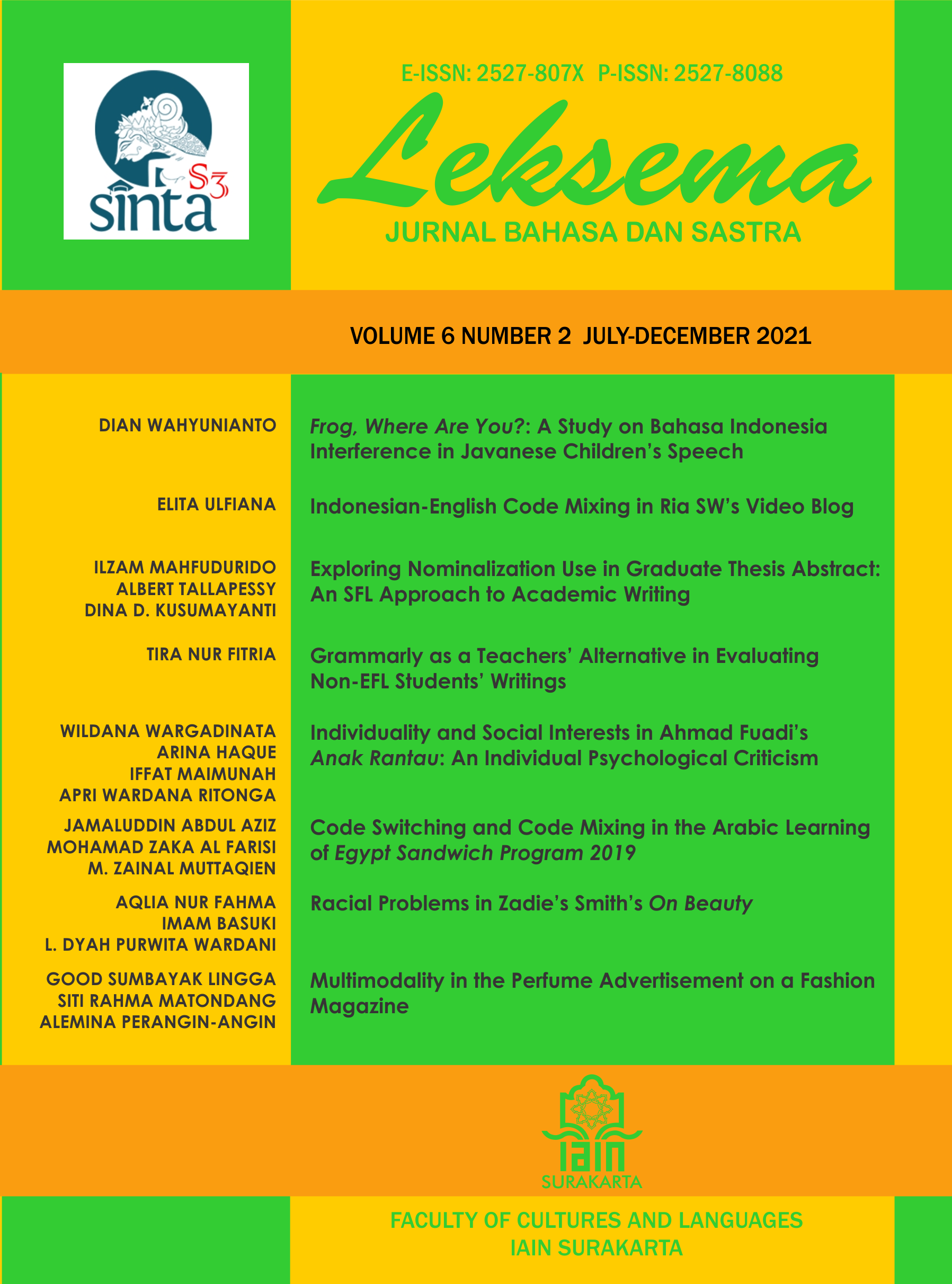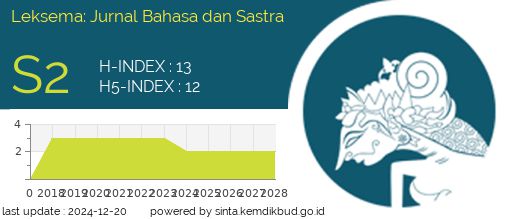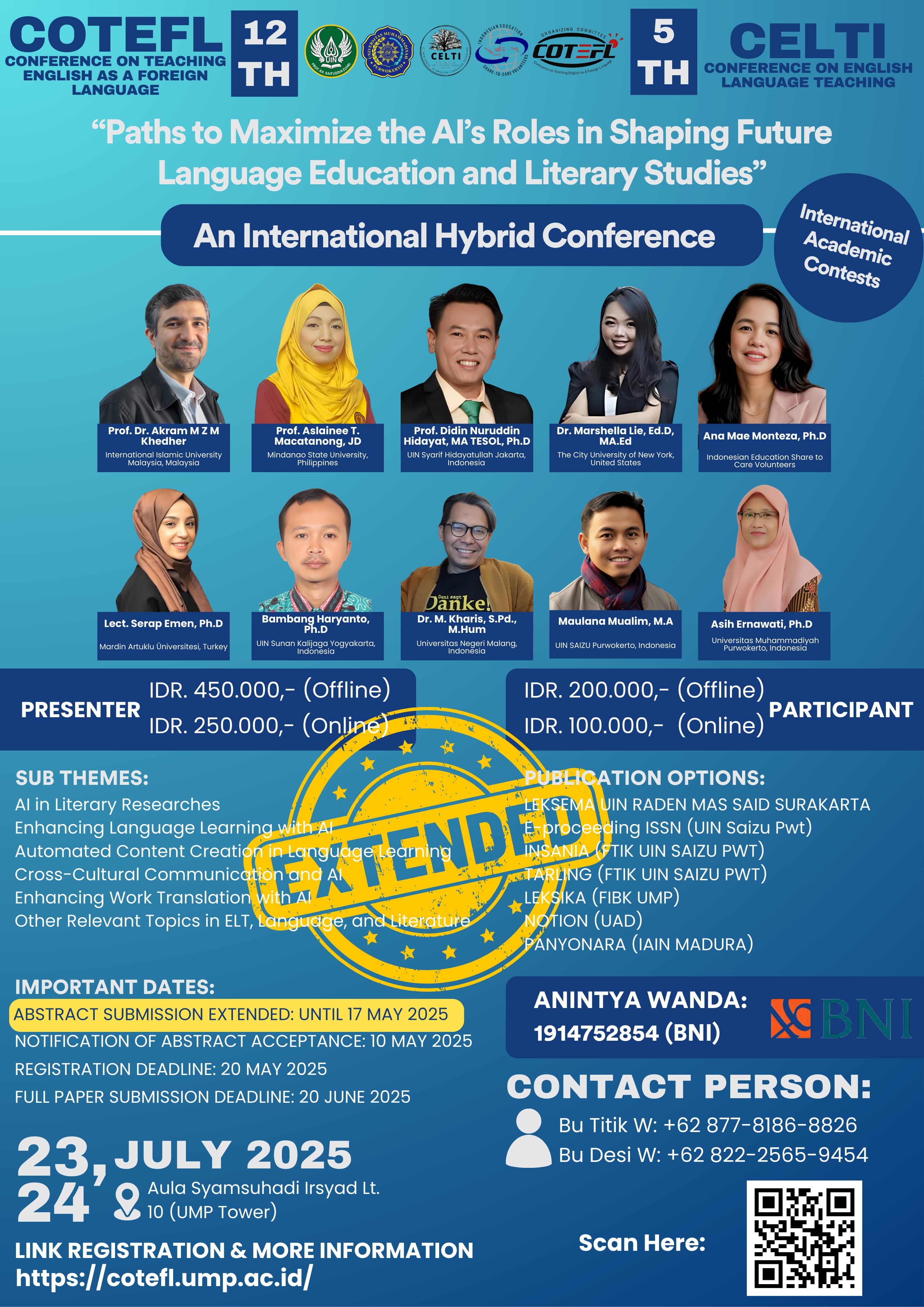'GRAMMARLY' AS A TEACHERS' ALTERNATIVE IN EVALUATING NON -EFL STUDENTS WRITINGS
DOI:
https://doi.org/10.22515/ljbs.v6i2.3957Keywords:
Grammarly, evaluate, non-EFL students, writingAbstract
Â
In evaluating students’ EFL writing, lecturers nowadays can implement corrective evaluation by using an online automatic software. Grammarly is automated online software that is comonly used in EFL writing classes. It is an internet proofreading service that evaluates the correctness grammarl, spelling, punctuation, and vocabulary as well as detects plagiarism. This paper reports research aimed at exploring the use of Grammarly software for evaluating non-EFL students’ writings. This research employed descriptive-qualitative method with students of ITB AAS Indonesia as the data sources. The results of analysis show that in correcting students' language errors, lecturers can evaluate and analyze in details without a lot of correcting efforts or improvements. Grammarly can be considered as a useful tool for lecturers who need to correct non-EFL students’ writings. Grammarly will automatically check or detect the work being typed from various related aspects. Various writing errors made by the students were found in Grammarly’s reports, both in the aspect of correctness and clarity. Correctness is concerned with the mechanical norms in writing, whereas clarity deals with concise and direct language use. The spelling errors found in students’ writings are text inconsistencies, misspelled words, and improper formatting whereas for grammatical there are subject-verb disagreement, passive voice misuse, as well as unclear, wordy, and incomplete sentences. Meanwhile, the errors in punctuation are shown by inappropriate use of punctuation marks in compound/complex sentence, comma misuse within clauses, and improper formatting. It can be concluded that Grammarly can be an alternative for lecturers’ in evaluating non-EFL students' writings.
Downloads
References
Altheide, David L & Christopher J Schneider. 2013. Qualitative Media Analysis. SAGE
Bailey, Daniel & Andrea Rakushin Lee. 2020. “An Exploratory Study of Grammarly in the Language Learning Context: An Analysis of Test-Based, Textbook-Based and Facebook Corporaâ€. TESOL International Journal 15 (2): 4-27
Barrot, Jessie Saraza. 2020. “Integrating Technology into ESL/EFL Writing through Grammarly:†RELC Journal 11/11. https://doi.org/10.1177/0033688220966632
Bassot, Barbara. 2015. The Reflective Practice Guide: An Interdisciplinary Approach to Critical Reflection. Routledge
Bazeley, Patricia. 2013. Qualitative Data Analysis: Practical Strategies. SAGE Publications
Brown, H Douglas. 2007. Principles of Language Learning and Teaching. Pearson-Longman
Busc, Ing Carsten, Tilo Wendler & Martin Steinicke. 2020. ECEL 2020 19th European Conference on E-Learning. Academic Conferences International Limited
Darayani, Nisrin Adelyna, Laksnoria Karyuatry & Muhammad Dhika Arif Rizqan. 2018. “Grammarly as a Tool to Improve Students’ Writing Quality.†Edulitics: Education, Literature, and Linguistics Journal 3 (1): 36-42
Fahmi, Mohammad Amiqul & Bambang Yudi Cahyono. 2002. “EFL Students’ Perception on the Use of Grammarly and Teacher Feedback.†JEES (Journal of English Educators Society) 6 (1): 18-25. https://doi.org/10.21070/jees.v6i1.849
Fitria, Tira Nur. 2018. “Error Analysis Found in Students’ Writing Composition of Simple Future Tense.†ELS Journal on Interdisciplinary Studies in Humanities 1 (3): 240–51. https://doi.org/10.34050/els-jish.v1i3.5028
Fitria, Tira Nur. 2019. “Errors in Students’ Writing Composition in Simple Present Tense My Daily Activity.†Edulangue 2 (1): 47-62. https://doi.org/10.20414/edulangue.v2i1.318
Fitria, Tira Nur. 2020. “Error Analysis Found in Students’ Writing Composition in Simple Past Tense of Recount Text.†English Franca: Academic Journal of English Language and Education 4 (2): 141-60. https://doi.org/10.29240/ef.v4i2.1154
Fitria, Tira Nur. 2020. “Error Analysis in Using Simple Past Tense Found in Students’ Writing of Recount Text.†ADJES (Ahmad Dahlan Journal of English Studies) 7 (1): 39-54. https://doi.org/10.26555/adjes.v7i1.12238
Fitria, Tira Nur. 2020. “Spelling Error Analysis in Students’ Writing English Composition.†Getsempena English Education Journal 7 (2): 240-254. https://doi.org/10.46244/geej. v7i2.988
Fitria, Tira Nur. 2021. “Analysis on Clarity and Correctness of Google Translate in Translating an Indonesian Article Into English.†International Journal of Humanity Studies (IJHS) 4, (2): 256-66. https://doi.org/10.24071/ijhs.v4i2.3227
Fitria, Tira Nur. 2021. “Grammarly as AI-Powered English Writing Assistant: Students’ Alternative for Writing English.†Metathesis: Journal of English Language, Literature, and Teaching 5 (1): 65–78. https://doi.org/10.31002/metathesis.v5i1.3519
Fitriani. 2020. “The Implementation 0f Grammarly Tool to Boost Students’ Writing Skill of Analytical Exposition Text (A Classroom Action Research at SMA Dharma Karya UT in 2019/2020).†(Undergraduate Paper). Jakarta: FITK UIN Syarif Hidayatullah. https://repository.uinjkt.ac.id/dspace/handle/123456789/51828
Ghufron, Muhammad Ali & Fathia Rosyida. 2018. “The Role of Grammarly in Assessing English as a Foreign Language (EFL) Writing.†Lingua Cultura 12 (4): 395-403. https://doi.org/10.21512/lc.v12i4.4582
Kusuma, IPI. 2020. Mengajar Bahasa Inggris dengan Teknologi: Teori Dasar dan Ide Pengajaran. Deepublish
Maxwell, Joseph A. 2013. Qualitative Research Design: An Interactive Approach. SAGE Publications
Miles, Matthew B & A. Michael Huberman. 1994. Qualitative Data Analysis: An Expanded Sourcebook. SAGE Publications
Nova, Muhamad. 2018. “Utilizing Grammarly in Evaluating Academic Writing: A Narrative Research on EFL Students’ Experience.†Premise: Journal of English Education and Applied Linguistics 7 (1): 80-97. https://doi.org/10.24127/pj.v7i1.1332
O'Neill, Ruth & Alex Russell. 2019. “Stop! Grammar Time: University Students’ Perceptions of the Automated Feedback Program Grammarly.†Australasian Journal of Educational Technology 35 (1). https://doi.org/10.14742/ajet.3795
Paramitha, Ni Putu Pande Trisna Yuni, I Nyoman Seloka Sudiara & I Gede Nurjaya. 2014. “Teknik Koreksi Dalam Evaluasi Hasil Belajar Menulis Karangan Siswa Kelas XI SMA Negeri 1 Kerambitan.†Jurnal Pendidikan Bahasa dan Sastra Indonesia Undiksha 2 (1). https://doi.org/10.23887/jjpbs.v2i1.3351
Pratama, Yoga Dwi. 2021. “The Investigation of Using Grammarly as Online Grammar Checker in the Process of Writing.†English Ideas: Journal of English Language Education 1(2). https://journal.unsika.ac.id/index.php/IDEAS/article/view/4180
Setiyo, Muji. 2017. Teknik Menyusun Manuskrip dan Publikasi Ilmiah Internasional. Deepublish
Swarbrick, Ann. 2002. Teaching Modern Languages. Routledge
Syafi’i, Ahmad. 2020. “Grammarly: An Online EFL Writing Companion.†ELTICS : Journal of English Language Teaching and English Linguistics 5 (2). https://doi.org/10.31316/ eltics.v5i2.912
Ventayen, Randy Joy & CC Orlanda-Ventayen. 2018. “Graduate Students’ Perspective on the Usability of Grammarly® in One ASEAN State University.†Asian ESP Journal 14 (1/1): 9-30
Whitman, Joy S & Laura R Haddock. 2018. Skill Development in Counselor Education: A Comprehensive Workbook. Routledge
Downloads
Published
Issue
Section
License
The copyright of the received article shall be assigned to the publisher of the journal. The intended copyright includes the right to publish the article in various forms (including reprints). The journal maintains the publishing rights to published articles.
In line with the license, the authors and users (readers or other researchers) are allowed to share and adapt the material only for non-commercial purposes. In addition, the material must be given appropriate credit, provided with a link to the license, and indicated if changes were made. If authors remix, transform or build upon the material, authors must distribute their contributions under the same license as the original.







